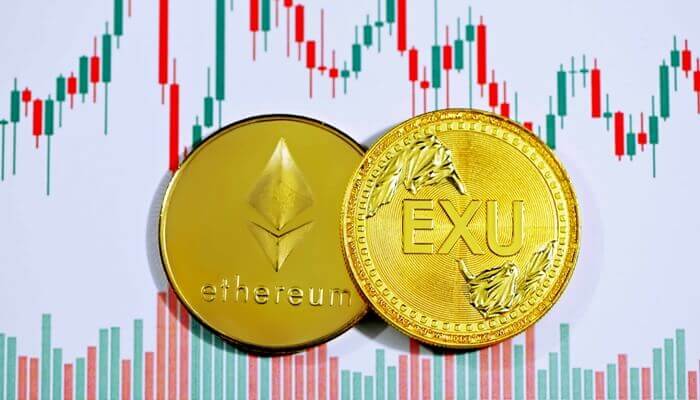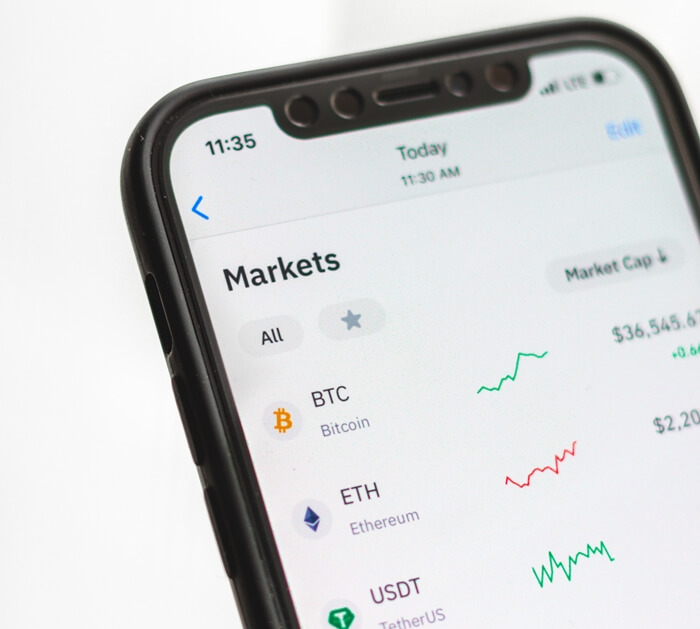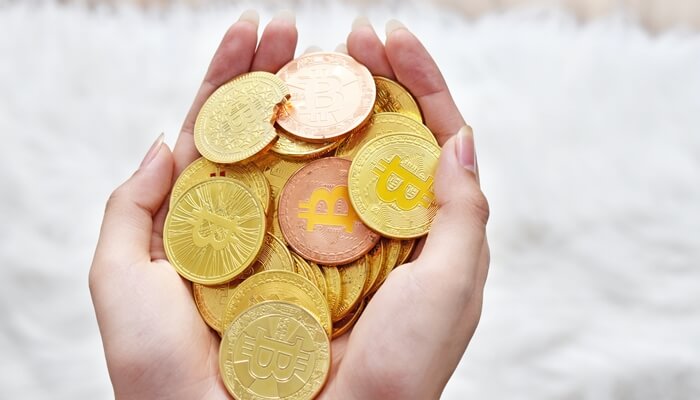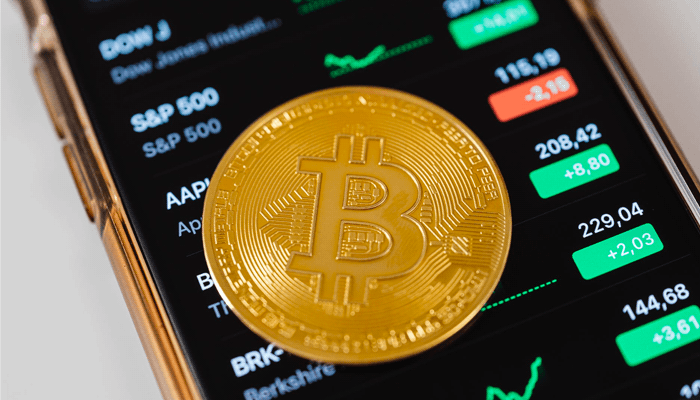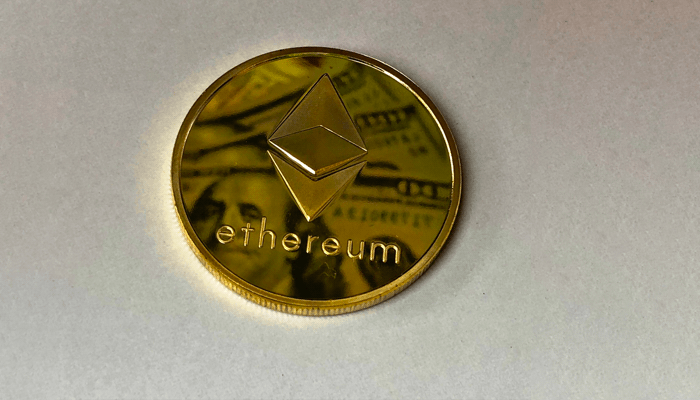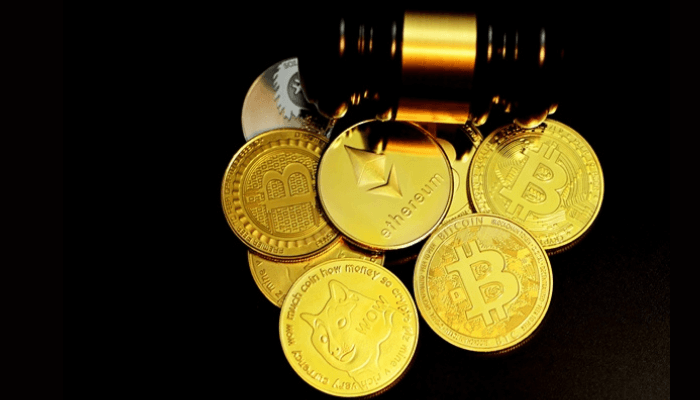Cryptocurrency Exchanges: What They Are & How They Work
The daily trade volume on the 50-year-old Nasdaq (home to $AAPL, $AMZN, and more) is around $200 billion. In close to 4 years, Binance has already reached $30 billion in 24-hour trade volume. The bottom line? Exchanges are growing fast.
As cryptocurrency becomes the future of finance, exchanges are windows for people like us to leverage the markets ourselves. Before that, it might be helpful to know what a cryptocurrency exchange is and which ones to use. Ready? Let’s go.
What is Cryptocurrency?
Cryptocurrency is digital money that you can use to buy or sell goods or services. It’s different from regular fiat currency in that its users are its regulators, not a government or banking authority.
Instead, we record crypto transactions on the blockchain. This is a public ledger that is simultaneously updated and secured on a global computer network.
What is a Crypto Exchange? How Does it Work?
Crypto exchanges are trading platforms to buy and sell cryptocurrencies like Bitcoin, Ethereum, and more. They serve some essential functions:
- Letting you buy cryptocurrency using fiat currency. That means converting your USD, AUD, or any other form of traditional money into crypto.
- Converting one cryptocurrency into another. If you’d like to swap your Ether for Dogecoin, you can do that on a crypto exchange.
- Exchanging your crypto back into traditional currency. If you’d like to pull out of the market, crypto exchanges let you sell your digital currency for fiat currency.
Crypto exchanges usually fall into one of two camps: centralized exchanges vs decentralized exchanges:
- Centralized exchanges (CEX): This type of platform acts as a middle man. When using a CEX, you deposit regular money (or crypto you already own) into an account. The CEX then acts as a custodian to buy your digital assets for you.
- Decentralized exchanges (DEX): These exchanges are entirely peer-to-peer. With no middle man or escrow services involved, a DEX crypto trading platform connects buyers to sellers — smart contracts execute the sale. Users always have access to their public and private keys.
One isn’t always better than the other. New crypto investors typically prefer CEXs, while experienced traders favour DEXs.
The Top 5 Crypto Exchanges
Going by CoinMarketCaps’ Exchange Score, the best cryptocurrency exchanges in the world are:
- Binance
- Coinbase
- Kraken
- Huobi
- FTX
Let’s go into the pros and cons of each:
Binance — The Best Crypto Exchange for Practitioners
With over $30 billion in trading volume as of August 2021, Binance is the largest cryptocurrency exchange in the world.
With over 40 fiat and 300+ digital currencies supported, Binance is highly accessible by international investors. Low transaction fees (0.1% on every trade) and advanced trading options (margin trading, futures trading, and more) make the exchange a top-rated platform.
However, some drawbacks include slow customer support and scarce educational resources. Binance isn’t one of the best crypto exchanges for beginners or casual investors.
Coinbase — The Best Crypto Exchange for Beginners
Since Coinbase’s billion-dollar IPO, the trading platform has only grown in popularity. Coinbase has several features that make it very popular with people new to the crypto space:
- FDIC insurance for your finds (98% of which are kept offline for extra security)
- User-friendly interface and educational platform
- Over 30 coins to invest in
However, some drawbacks include:
- High trading fees (anywhere from $0.99 to $2.99 for sub-$200 trades plus a 0.5% fee)
- You need to upgrade to Coinbase Pro to access any more advanced trading tools
Coinbase is still an excellent choice for beginners looking to incorporate crypto into their personal finance despite those cons.
Kraken — The Original Crypto Exchange
Kraken has helped people buy Bitcoin and other cryptocurrencies since 2011, making it one of the oldest exchanges on this list. The OG platform is reliable, respected, and boasts low fees of up to 0.36%. Kraken is also adept at quickly withdrawing funds from your bank account and offers comprehensive customer support around the clock.
Some cons include Kraken’s complexity (which may be too much for beginners) and their limit of seven accepted fiat currencies. Nonetheless, if you’re looking for a wide selection of coins with an industry original, Kraken is the exchange for you.
Huobi — An All-Around Solid Cryptocurrency Exchange
With over $5.7 billion in trading volume, Huobi Global is one of the biggest exchanges in the world. Founded in China, the platform grew popular in Asia before gaining traction worldwide.
Huobi offers nearly as many coins as Binance but doesn’t require the same Know-Your-Customer documents that other platforms do. Their referral program also rewards you 30% cashback of your recruit’s first trade.
But the platform has its drawbacks: its margin trading leverage is lower than others’, and unverified traders face strict withdrawal limits.
FTX — The Best Cryptocurrency Exchange for Derivatives
FTX specializes in crypto derivatives (like options trading or futures trading). With over $2 billion in trading volume, FTX is popular with enthusiast investors and institutions alike. Here are just some of the investment options available to you on the platform:
- 101x leverage on specific cryptocurrency pairs
- High withdrawal limits: $2,000 daily with just an email address, name, and region.
- Low trading fees start at 0.07% but could drop to 0.045%.
On the downside, derivatives trading is very complicated and can be very risky for beginners. FTX is best for experienced or institutional investors.
How to Choose the Best Crypto Exchanges for You
Finding the best cryptocurrency trading platform is difficult, not impossible. Consider these factors as you decide where to deposit your money:
- Security and insurance. Does the platform require Know-Your-Customer files? Do they have a history of cyberattacks, thefts, and vulnerabilities? Is 2-factor authentication needed to log in? Are your deposits insured in case of fraud?
- International coverage. Cryptocurrency as a concept is global, but many exchanges are not. Ensure you are eligible to use an exchange before any money gets involved.
- Cryptocurrency selection. Are you interested in more niche coins or meme coins? Or are you happy with a more refined selection? CoinMarketCap provides overviews of all the coins that an exchange offers.
- Payment methods. A variety of deposit methods — credit, PayPal, bank transfer — signals a reliable platform.
- Fee structure. Trading fees can be anywhere from free to 0.7%. If you plan on day trading crypto, this might be a more significant concern.
- Liquidity. Do you have limits on how much you can buy or sell every day? How easy is it to withdraw your money?
Start Trading Cryptocurrencies Today
Crypto exchanges are like stock exchanges for virtual currencies. As cryptocurrency becomes more popular as an investment tool, these platforms will gain even more importance.
Dan Hollings is the marketing genius behind thousands of Amazon sellers and the promotion for ‘The Secret.’ He has also spent the last three years mastering a critical skill:
Using crypto trading platforms and bots to generate passive income from the markets.
Interested in learning how Dan did it? Sign up for The Plan here!
Frequently Asked Questions
Which is the best cryptocurrency exchange?
Exchanges all have their specialties:
- Coinbase is best for beginners.
- Binance has the widest selection of cryptocurrencies.
- FTX is the best platform for crypto derivatives.
What cryptocurrency exchange has the lowest fees?
Coinbase Pro has low fees of 0.5%. This value varies depending on the trade size and 30-day volume). Other platforms like BlockFi offer free trades for your cryptocurrencies.
What is the easiest cryptocurrency exchange to use?
Traders herald Coinbase as the best crypto exchange platform for beginners. It accepts many fiat currencies and has an approachable user interface.
What are the three main types of crypto exchanges?
Decentralized exchanges, or DEXs, are peer-to-peer markets. It would be like selling stock directly to its buyer. Centralized exchanges, or CEXs, have an intermediary making the market. Hybrid exchanges combine features of both.
